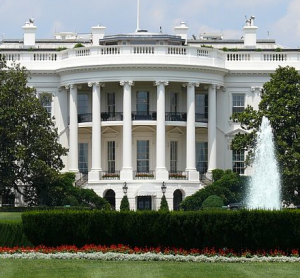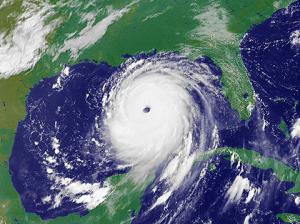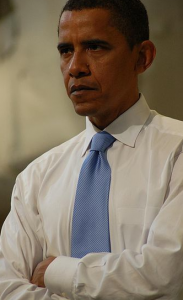
The Obama administration announced that it planned to release 30 million barrels of oil from the
Strategic Petroleum Reserve as part of an effort coordinated with the
International Energy Agency to drive down high oil prices and to revive weakening economies in some of the world's largest industrialized countries. This is only the third time this action has been taken, and the first not directly related to a large supply disruption from either war or environmental disaster.
Markets have done a quick about-face
The oil will be released over the next 30 days, according to Energy Secretary Steven Chu, representing half of the 60 million barrels that nations in the IEA plan to bring to the oil market. The reserves should start flooding the market by the end of next week, but the announcement's effects are already being felt. Formerly rising, the oil markets have done a quick about-face.
Neela Banerjee of the Los Angeles Times:
"We are taking this action in response to the ongoing loss of crude oil due to supply disruptions in Libya and other countries and their impact on the global economic recovery," Chu said.
Fighting in Libya has caused a loss of about 1.5 million barrels of oil per day from global markets. Despite the absence of Libyan oil, there is no shortage of oil in the world. But nervousness about unrest spreading to other Arab oil producers, speculative investment in the oil markets and the revival of the Chinese and Indian economies have pushed crude prices to painful levels.
Forbes' Christoper Helman added:
"Crude oil prices and shares of oil companies plunged on the news, with Brent crude down more than $6 to $107 per barrel and West Texas Intermediate off $5 to $90...
The timing of this move comes just days ahead of the end of the Federal Reserve's second quantitative easing program... Knocking $20 a barrel off oil prices would reduce America's annual oil spend by some $150 billion.
The IEA traditionally opposed using reserves to manage prices

This is only the third time in its history the agency has called on member countries to make a release. Most recently, oil was released in 2005 after
Hurricane Katrina severely damaged oil infrastructure in the Gulf of Mexico. The first release occurred after
Iraq's invasion of Kuwait in the early '90s.
The IEA has traditionally opposed using reserves to manage price rises, fearing that releasing oil to counteract high prices would add an additional source of speculation by interfering with market signals. According to
Reuters' John Kemp:
The suspicion is that the decision to order the release reflects a change of personnel and philosophy--particularly at the White House. President George W. Bush and his energy advisers took a strongly pro-market orientation... President Barack  Obama appears much more inclined to intervene.
The president has already made clear he believes speculators are to blame for exacerbating the recent price rise...Gyrations in oil prices (such as the sudden drop on May 5 and equally rapid recovery) have not helped the cause of those who insist prices are driven by fundamentals.
Across the federal government, and in other capitals, there has been a marked loss of faith in the ability of markets to price assets correctly in the aftermath of the 2008 financial crisis, and a new willingness to intervene--for example, the Federal Reserve's quantitative easing programme. Intervention that was once unthinkable now has more supporters.
Obama appears much more inclined to intervene.
The president has already made clear he believes speculators are to blame for exacerbating the recent price rise...Gyrations in oil prices (such as the sudden drop on May 5 and equally rapid recovery) have not helped the cause of those who insist prices are driven by fundamentals.
Across the federal government, and in other capitals, there has been a marked loss of faith in the ability of markets to price assets correctly in the aftermath of the 2008 financial crisis, and a new willingness to intervene--for example, the Federal Reserve's quantitative easing programme. Intervention that was once unthinkable now has more supporters.
The coordinated nature of this move points to ample planning. Last week, Saudi Arabia's decision to go outside OPEC and increase production happened after secret talks with the Obama administration.
Photo: Barack Obama--Elizabeth Cromwell, Wikicommons
Photo: White House-- Ad Meskens, Wikicommons
Photo: Hurricane Katrina-- US Navy, Wikicommons
Photo: Oil rigs--Patroklos32, Wikicommons
Photo: Off shore oil rig-- Nandu Chitnis, Wikicommons
 The Obama administration announced that it planned to release 30 million barrels of oil from the Strategic Petroleum Reserve as part of an effort coordinated with the International Energy Agency to drive down high oil prices and to revive weakening economies in some of the world's largest industrialized countries. This is only the third time this action has been taken, and the first not directly related to a large supply disruption from either war or environmental disaster.
The Obama administration announced that it planned to release 30 million barrels of oil from the Strategic Petroleum Reserve as part of an effort coordinated with the International Energy Agency to drive down high oil prices and to revive weakening economies in some of the world's largest industrialized countries. This is only the third time this action has been taken, and the first not directly related to a large supply disruption from either war or environmental disaster.
 This is only the third time in its history the agency has called on member countries to make a release. Most recently, oil was released in 2005 after Hurricane Katrina severely damaged oil infrastructure in the Gulf of Mexico. The first release occurred after Iraq's invasion of Kuwait in the early '90s.
The IEA has traditionally opposed using reserves to manage price rises, fearing that releasing oil to counteract high prices would add an additional source of speculation by interfering with market signals. According to Reuters' John Kemp:
This is only the third time in its history the agency has called on member countries to make a release. Most recently, oil was released in 2005 after Hurricane Katrina severely damaged oil infrastructure in the Gulf of Mexico. The first release occurred after Iraq's invasion of Kuwait in the early '90s.
The IEA has traditionally opposed using reserves to manage price rises, fearing that releasing oil to counteract high prices would add an additional source of speculation by interfering with market signals. According to Reuters' John Kemp:
Obama appears much more inclined to intervene. The president has already made clear he believes speculators are to blame for exacerbating the recent price rise...Gyrations in oil prices (such as the sudden drop on May 5 and equally rapid recovery) have not helped the cause of those who insist prices are driven by fundamentals. Across the federal government, and in other capitals, there has been a marked loss of faith in the ability of markets to price assets correctly in the aftermath of the 2008 financial crisis, and a new willingness to intervene--for example, the Federal Reserve's quantitative easing programme. Intervention that was once unthinkable now has more supporters.








